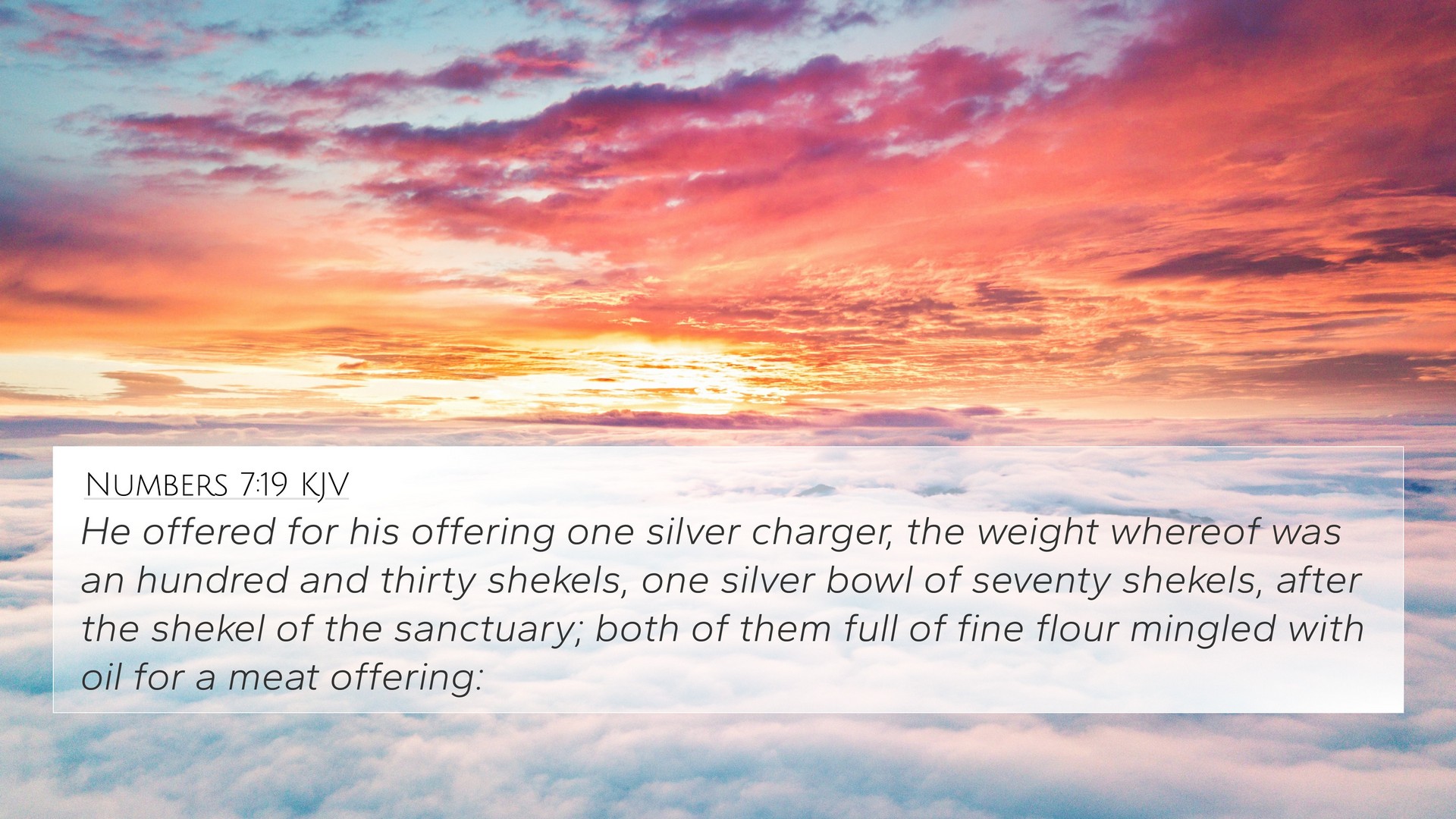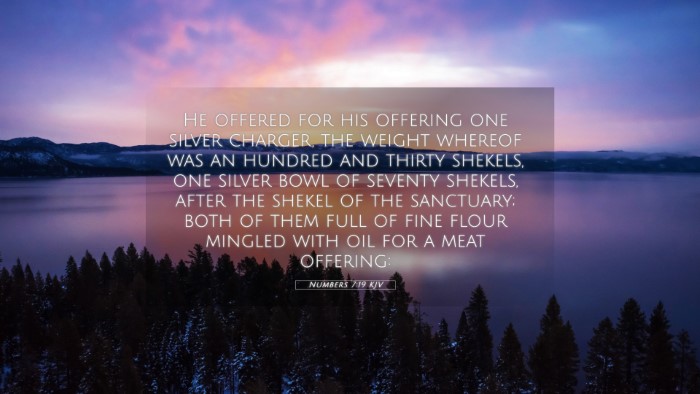Bible Verse Meaning: Numbers 7:19
Numbers 7:19 states: "On the second day Abidan the son of Gideoni, a prince of the children of Benjamin, offered." This verse comes from a detailed account of the offerings made at the dedication of the altar by the leaders of each of the tribes of Israel. The context of this verse underscores themes of leadership, stewardship, and communal worship.
Understanding the Verse
The offering made by Abidan as described in this scripture is a part of a larger series of offerings detailed throughout Numbers 7, representing the tribes of Israel coming together to honor God and dedicate the altar for worship. According to Matthew Henry, this act signifies the unity and devotion among God's people as they prepare to serve Him in the wilderness.
Albert Barnes emphasizes that Abidan's offering reflects not only individual piety but also the broader communal identity of Israel as God's chosen people. His status as a "prince" points to the responsibilities that come with leadership and the importance of leading through example in faith and worship.
Adam Clarke discusses the significance of offerings in establishing and maintaining a covenant relationship with God. Clarke indicates that these rituals were not merely about the act of giving but were integrally connected to God's covenantal promises and the people's remembrance of His faithfulness.
Thematic Connections
This verse connects with several thematic elements within scripture, particularly concerning the themes of leadership and community worship. The offerings serve as a reminder of the dedication required not only from leaders but also from the entire congregation of Israel as they journey through the wilderness toward the Promised Land.
Bible Cross-References
For a deeper understanding and to identify connections between Bible verses, here are ten cross-references related to Numbers 7:19:
- Exodus 29:38-46: The establishment of offerings for the altar.
- Leviticus 1:1-17: Instructions about burnt offerings.
- Deuteronomy 18:1-5: The priestly duties of the Levites.
- 1 Chronicles 16:29: Ascribe to the Lord the glory due His name; bring an offering.
- Hebrews 13:15-16: The sacrifices of praise we offer to God.
- Malachi 1:11: The importance of offering incense and pure sacrifices.
- Matthew 5:23-24: Jesus teaching about reconciliation before offering gifts.
- Acts 4:32-35: The unity of the early church in sharing resources.
- Romans 12:1: Paul urging believers to present their bodies as living sacrifices.
- Philippians 4:18: A sweet-smelling aroma to God through the generosity of the church.
Comparative Bible Verse Analysis
A close examination of Numbers 7:19 alongside the above references unveils the intricate tapestry of worship and community within the Bible. It reflects back to the Israelites’ identity as a worshipping community rooted in the acknowledgment of God’s sovereignty, thereby illustrating the connections between Bible verses that showcase how the act of offering and community worship was central throughout both the Old and New Testaments.
Identifying Inter-Biblical Dialogue
As one seeks to understand how this verse fits into the broader themes of the Bible, it is vital to engage in scriptural cross-referencing. For instance, the themes of leadership and community worship found in Numbers can be seen echoed in the New Testament with the concepts of the body of Christ (1 Corinthians 12) and the call for believers to serve sacrificially (Romans 12:1).
Tools for Bible Cross-Referencing
Utilizing tools such as a bible concordance or bible cross-reference guide can greatly enhance your study of cross-referencing biblical texts. These resources help identify connections and similarities, deepening one's understanding of scripture.
Understanding how to cross-reference Bible verses can enrich your study and provide clarity on how various scripture passages illuminate each other.
Conclusion
In conclusion, Numbers 7:19 exemplifies a moment of dedicated worship and communal offerings that connect deeply with broader biblical themes. By examining this verse alongside its cross-references, readers can appreciate the profound nature of offerings in the life of God's people and the continuing dialogue within scripture regarding worship, community, and leadership. Such studies are crucial for anyone interested in understanding the full scope of Biblical texts.


